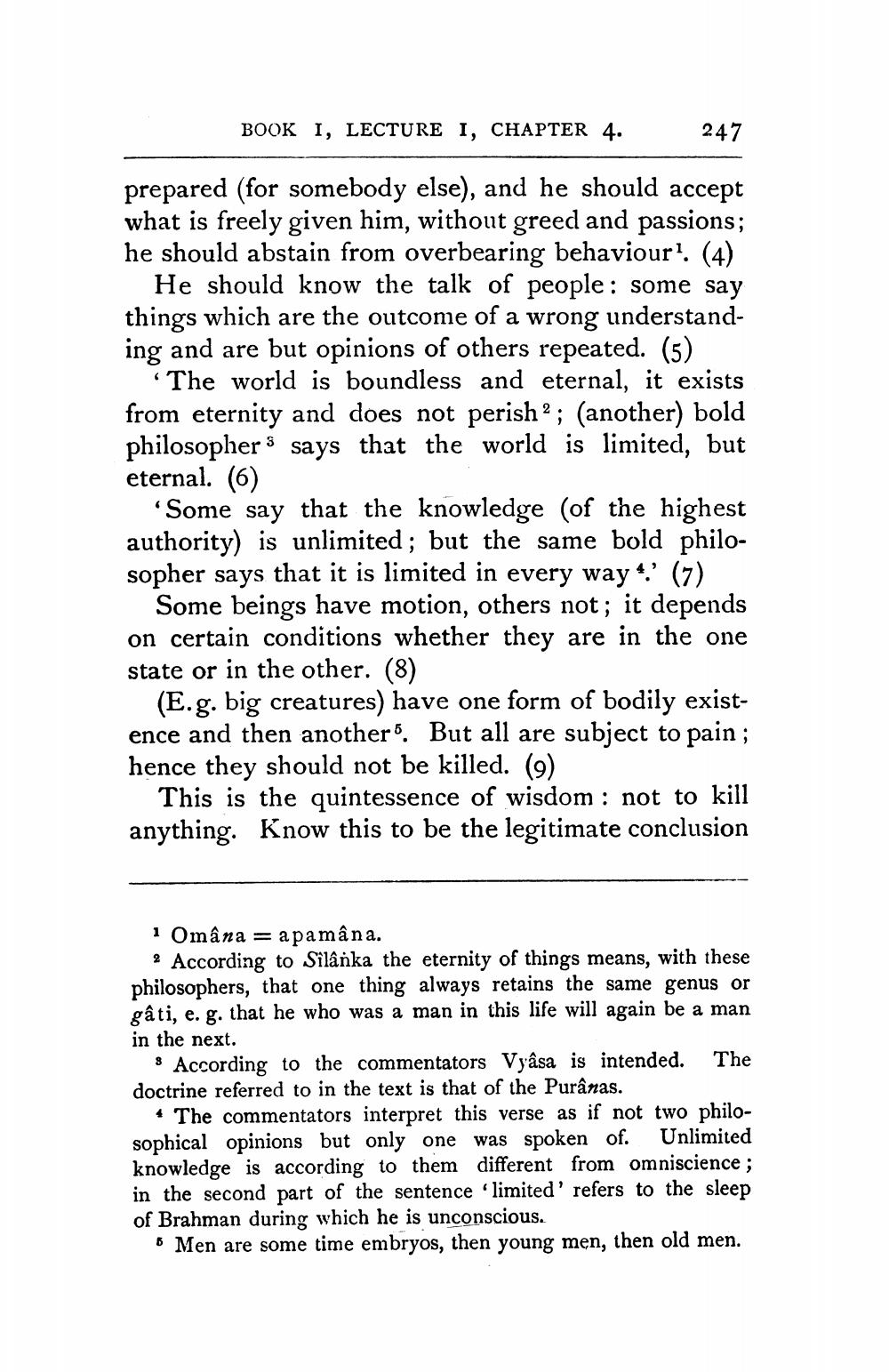________________
BOOK I, LECTURE I, CHAPTER 4.
247
prepared (for somebody else), and he should accept what is freely given him, without greed and passions; he should abstain from overbearing behaviour?. (4)
He should know the talk of people: some say things which are the outcome of a wrong understanding and are but opinions of others repeated. (5)
The world is boundless and eternal, it exists from eternity and does not perish”; (another) bold philosophers says that the world is limited, but eternal. (6)
Some say that the knowledge (of the highest authority) is unlimited; but the same bold philosopher says that it is limited in every way t' (7)
Some beings have motion, others not; it depends on certain conditions whether they are in the one state or in the other. (8)
(E.g. big creatures) have one form of bodily existence and then another 6. But all are subject to pain; hence they should not be killed. (9)
This is the quintessence of wisdom : not to kill anything. Know this to be the legitimate conclusion
i Omâna = apamâna.
2 According to Silanka the eternity of things means, with these philosophers, that one thing always retains the same genus or gâti, e. g. that he who was a man in this life will again be a man in the next.
s According to the commentators Vyâsa is intended. The doctrine referred to in the text is that of the Puranas.
4 The commentators interpret this verse as if not two philosophical opinions but only one was spoken of. Unlimited knowledge is according to them different from omniscience ; in the second part of the sentence limited' refers to the sleep of Brahman during which he is unconscious.
6 Men are some time embryos, then young men, then old men.




